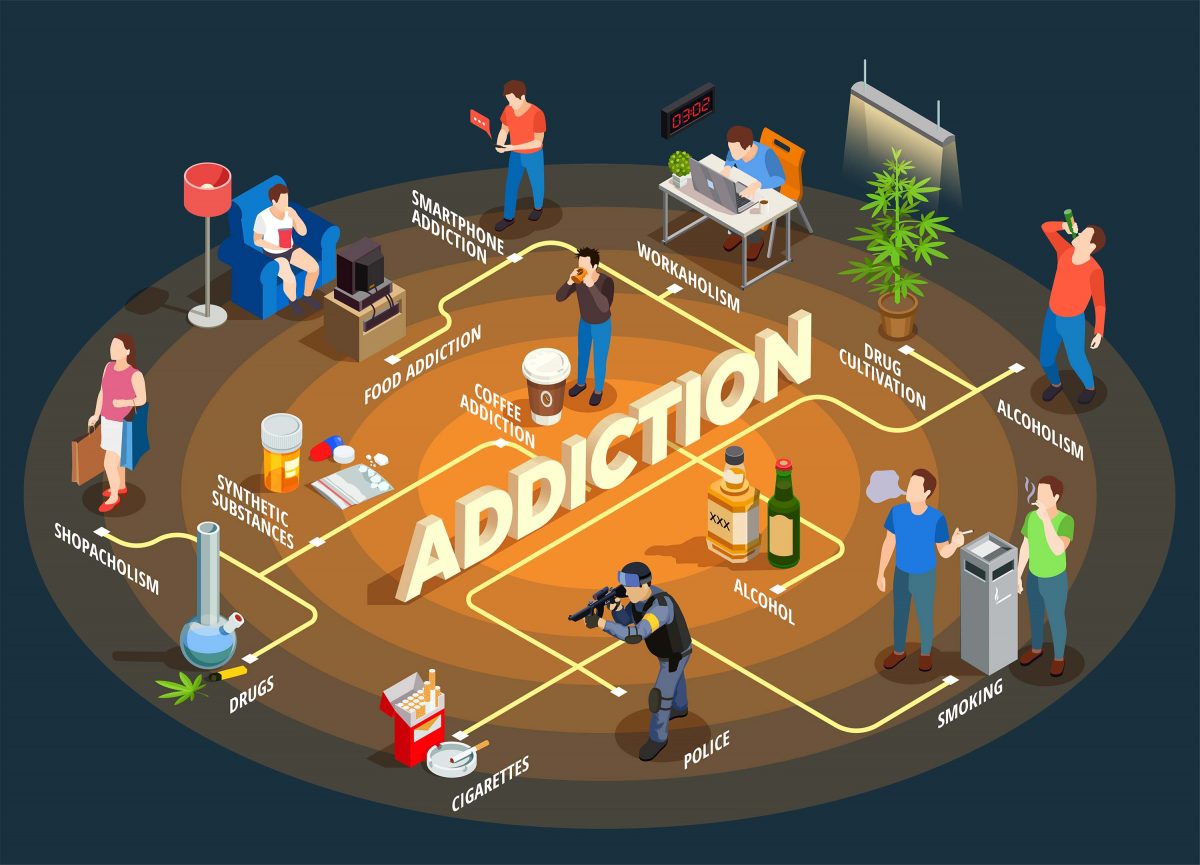
A person with an addiction uses a substance, or engages in a behaviour for which the rewarding effects provide a compelling incentive to repeat the activity, despite detrimental consequences. Addiction may involve the use of substances such as alcohol, inhalants, opioids, cocaine, and nicotine, or behaviours such as gambling.
Both substance use disorders and gambling behaviours have an increased likelihood of being accompanied by mental health conditions, such as depression and anxiety, or other pre-existing problems.
Another distinguishing feature of addiction is that individuals continue to pursue the activity despite the physical or psychological harm it incurs, even if it the harm is exacerbated by repeated use. Typically, one’s tolerance to a substance increases as the body adapts to its presence.
All addictions have the capacity to induce a sense of hopelessness and feelings of failure, as well as shame and guilt but research documents that recovery is the rule rather than the exception. There are many routes to recovery. Individuals can achieve improved physical, psychological, and social functioning on their own—so-called natural recovery. Others benefit from the support of community or peer-based networks. And still others opt for clinical-based recovery through the services of credentialed professionals.
So now you might be asking what causes addiction. Well, like most conditions, there is no one factor. There are biological, psychological and environmental/social factors that all have a role to play. In simpler terms, if you have a family history of addiction, there’s a greater chance of that being passed down to you in your genes. Next, if yours is the impulsive, risk taking type of personality, you may be prone to trying new things and in this case substances to which you eventually become addicted. Finally, home factors, such as a dysfunctional family and poor emotional support from relatives, can lead into addiction.
So because the causes of addition are multifaceted, the treatment options must follow the same pattern. Have a look at the following treatment options:
Detoxification, conducted under medical supervision, may be needed but is only the first stage of treatment.
Medications that reduce or counter use of illicit substances are suitable for some individuals, or medication may be used to target co-occurring disorders, such as anxiety and depression.
Motivational Interview-ing, which is a short-term counselling process to help a person resolve ambivalence about treatment and find and hold onto incentives for change.
Cognitive Behavior Therapy (CBT) can help a person recognize and cope with situations that trigger the desire to use substances.
Group therapy and other peer-support programmes leverage the direct experience of many to support individual recovery and prevent the recurrence of substance use.
Family therapy helps individuals repair any damage done to family relationships and to establish more supportive ones.
Life skills training, including employability skills, may be part of an individual’s treatment plan.
If you believe that you or a family member may be suffering from an addiction, visit your family doctor and follow their advice. Guyana has two treatment facilities and these are the Salvation Army Men’s Social Centre and the Phoenix Recovery Project. Remember, addiction is no one’s fault and if you are having difficulty convincing someone of their addiction try an intervention technique or a group talk with the affected person and their close family and friends. This will allow the person to understand and accept the need for professional help
Alicia Roopnaraine is a Psychologist. You can send questions or comments to her at aliciaroopnaraine@gmail.com





